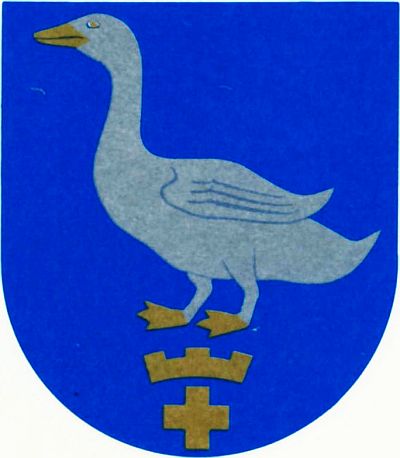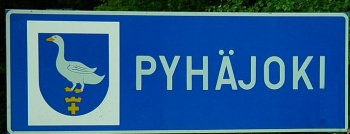Pyhäjoki: Difference between revisions
Jump to navigation
Jump to search
Knorrepoes (talk | contribs) No edit summary |
Knorrepoes (talk | contribs) No edit summary |
||
| Line 17: | Line 17: | ||
The goose refers to a boulder near the mouth of the river Pyhäjoki, named Hanhikivenniemi (= goose-stone). Towards the end of | The goose refers to a boulder near the mouth of the river Pyhäjoki, named Hanhikivenniemi (= goose-stone). Towards the end of | ||
15th century the Russians considered the boulder the border. The cross and crown are the boundary marks, carved into the stone. | 15th century the Russians considered the boulder the border. The cross and crown are the boundary marks, carved into the stone. | ||
{|align="center" | |||
|align="center"|[[File:pyhajoki1.jpg|center|350 px]] <br/>The arms on a road sign | |||
|} | |||
{{media}} | {{media}} | ||
Revision as of 09:19, 19 December 2015
PYHÄJOKI
Region : Pohjois-Pohjanmaa
Former province : until 2009 Oulu
Official blazon
Sinisessä kentässä hopeinen kultavaruksinen hanhi, jonka alapuolella kultainen kruunu ja risti alakkain.
Origin/meaning
The arms were officially granted on September 22, 1965.
The goose refers to a boulder near the mouth of the river Pyhäjoki, named Hanhikivenniemi (= goose-stone). Towards the end of 15th century the Russians considered the boulder the border. The cross and crown are the boundary marks, carved into the stone.
| The arms on a road sign |
Contact and Support
Partners:
Your logo here ?
Contact us
© since 1995, Heraldry of the World, Ralf Hartemink 
Index of the site
Literature : Pirinen, 1982











